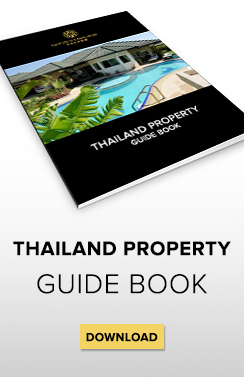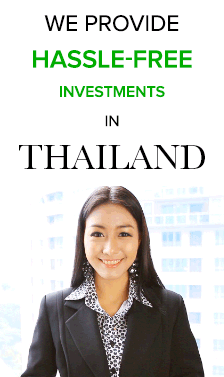Lenovo moves regional hub to Thailand
Lenovo Inc, the world’s largest computer maker, has embarked on a geographical restructuring effort as it strives to enhance operational efficiency amid a saturated PC market.The Chinese computer giant has promoted Thailand as its operations centre in Indochina, taking over the duties and responsibilities of the Singapore business unit, said Jeerawut Wongpimonporn, country manager of Lenovo Thailand.
In In October, Lenovo grouped its 10 business units in Asean with those in Hong Kong, Taiwan and South Korea, defining them a single region called central Asia-Pacific.”The restructure is aimed at increasing our operational and management efficiency in the region,” said Mr Jeerawut, who also oversees Indochina business for Lenovo. LG is considering opening offices in Cambodia and Myanmar.
“We expect revenue rom Cambodia, Laos, Myanmar and Vietnam to account for at least 20% of total revenue for Lenovo Thailand in 2017,” he said. Lenovo is widening the price range for its products to cover all market segments.Lenovo yesterday introduced Legion, a new brand for its gaming notebook products in Thailand.
The Legion brand offers advanced features and more affordable prices to serve the mass market.Mr Jeerawut said by June Lenovo Data Centre Business Group plans to introduce a hyper-converged appliance that combines server and storage resources into a single device to accommodate increasing demand for enterprise-level solutions.To sustain revenue growth, he said Lenovo will focus on providing more advanced features to tap into high-end consumers. IT spending in Thailand is expected to increase by 3-5% this year.
Source:Bangkok Post
Thai Condominium association upbeat market will pick up
The Thai Condominium Association, Thai Real Estate Association and Housing Business Association are confident that the realestate industry will pick up early this year, setting the mood for a frenzied 36th House and Condo Show.
The annual event to be held from March 912 at the Queen Sirikit National Convention Centre promises to enthral visitors with an impressive array of housing projects.
Wichai Poolworaluk, chairman of the organising committee, said today there are positive signs – political stability, still low interest rate for home loans and revival in private investment that has boosted employment and purchasing power.
The government also now has clear investment plans with steady spending on infrastructure particularly rapid transit lines.
“We therefore have confidence that the House and Condo Show will win an overwhelming response from prospective homebuyers.”
The organisers have received good cooperation from more than 200 developers, which will showcase over 1,100 properties across Thailand, including new launches.
Financial institutions will be offering their services and credit checks.
Spanning over 10,000 square metres of space, the show will feature 544 booths under the “Let’s get your bestination for your most beloved” concept.
“We seek to communicate with people that the House and Condo Show is an important event for people who will start the new chapter of their life with their beloved.
“Getting a home that fits your taste, sits in a good location and comes at a reasonable price is crucial to starting a family,” he said.
The show is expected to attract more than 100,000 attendees and generate sales of more than Bt11 billion – Bt4 billion during the event plus Bt7 billion later.
Source: The Nation
Chinese are becoming investors first, tourists second in Thailand
Chinese demand for real estate in Thailand is at an apogee, but the Beijing government’s drive to control capital flight could hinder such demand, according to a new report by Financial Times Confidential Research (FTCR).
Surveying 108 investors, FTCR found that Chinese buyers, mostly only “moderately wealthy” and put off by skyrocketing values in the mainland, are scouring the kingdom for residential properties. Buyers from China now account for 10 to 20 percent of total sales in the tourist hubs of Chiang Mai, Pattaya, and Phuket, and 5 percent of those in Bangkok.
However, such foreign demand is likely to recede soon. “The immediate outlook for Chinese investment flows into Thailand is negative,” FTCR stated in its report.
“In this new climate, we expect investors to delay plans to purchase more Thai real estate, at least until the dust settles, if not until the Chinese government loosens up again.”
Thailand is now the fifth most popular destination for real estate investment by the Chinese, FTCR pointed out. In 2010, almost no Chinese were buying homes in Thailand.
That year, Chinese tourist arrivals in the country topped 1.22 million, according to the Thai Immigration Bureau.
Despite signs that the Chinese government’s capital controls could remain in place indefinitely, a third of FTCR’s respondents still reported an intention to purchase another Thai property within two years. Around 26.8 percent of respondents evinced a desire to buy in Phuket, the most for all Thai destinations, followed by Chiang Mai (19.5 percent).
The greatest concentration of recent purchases by the Chinese lies in Bangkok, with 29.3 percent of respondents currently owning a home in the Thai capital. Chiang Mai is next, with 21.8 percent of respondents reporting residential properties in the northern Thai city, followed by Phuket (17.3 percent) and Chonburi (15.8 percent).
Most of the respondents are considered mid-market buyers. Sixty-three percent spent CNY1 million (USD145,386) on their homes, while 22 percent paid CNY500,000.
One Shanghai-based respondent opined that Thai real estate is more within his means, with reasonably high rental yields to boot, than comparable properties in China. “(Thailand) is just like China in the 1980s: everything is waiting for a great boom,” he told FT.
Source: Property Report
Ho Chi Minh City Property Seminar
Vietnam’s new residential housing law implemented on 1st July 2015 allows foreigners to buy properties in the country for a 50-year leasehold with renewal possibility upon expiration. This, coupled with the infrastructure development such as the metro (MRT) system in Ho Chi Minh City (HCMC), new international airport by year 2025, and the Regeneration of Thu Thiem – the new “West Kowloon” / “Pudong” of HCMC, will contribute to the upside in HCMC’s property market. Golden Emperor hosted ‘Ho Chi Minh City Property Seminar’ with partnership with CapitaLand, a largest developer in Southeast Asia, and owned by Temasek/Singapore Government, rated AAA/Aaa/AAA. Vista Verde a residential development in HCMC, was launched at our event as well, the seminar attracting many customers attended over the weekend.

Above: Many investors attended the weekend seminar.

Above: Terence Chan, Director of Golden Emperor, provided a presentation on the HCMC property market.
Bank of Thailand governor: Thailand assets a safe haven
Foreign investors are parking money in Thai assets in the short run because they see the baht as a safe haven backed by solid foreign reserves amid global market fluctuation, the central bank chief says.
Thailand’s strong external front, as seen by high international reserves, is encouraging foreign investors to shift money back to the Thai capital and bond markets, at least in the short term.”Thailand currently has reserves of around US$200 billion, including US dollar forwards, representing the 12th-highest foreign reserves in the world,” Mr Veerathai said.
And while the recent capital flows are considered minimal, moving money in or out of the country at the same time could create volatility in the baht’s value.The baht rose to 34.99 to the US dollar yesterday from 35.02 on Wednesday. The local currency has appreciated 2.4% this year, compared with 0.9% gains in Malaysia’s ringgit and Indonesia’s rupiah, according to Reuters data.
“These kind of money flows into the country strengthen the baht, whichin our opinion, is not good for the Thai economy,” Mr Veerathai said.He said the central bank may use some of its policy instruments, rather than a floating exchange rate, to curb baht fluctuation if capital flows are judged as not beneficial to the economy.”In the current stage of a highly fluctuating world, it’s the central bank’s duty to have a wide range of policy instruments in its menu to be ready to use,” Mr Veerathai said.
The portion of foreign investor holdings in Thai government bonds is smaller than in Malaysia’s or Indonesia’s, a condition that lessens the risk of sudden capital flows causing currency volatility.”Thailand has only about 9% of government bonds held by foreigners, while it’s as high as 40-50% in the case of Malaysia and Indonesia,” Mr Veerathai said.
He voiced confidence that the Thai economy would experience a broader-based recovery in 2017 after last year’s uneven showing.The Bank of Thailand forecasts 2017 GDP growth of 3.2%. The central bank’s Monetary Policy Committee is set to review the forecast and reveal the outlook for 2018 at its next meeting on March 29.
Source:Bangkok Post




















